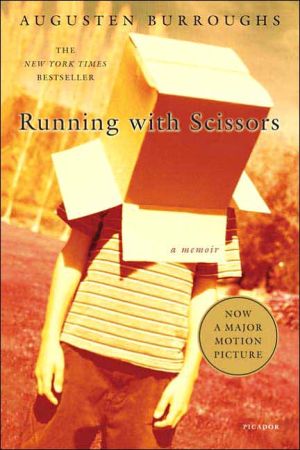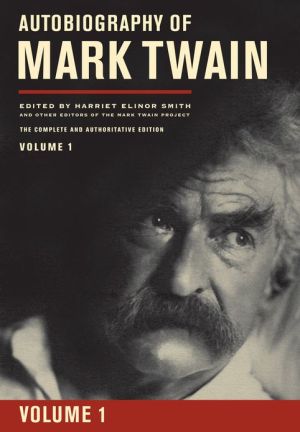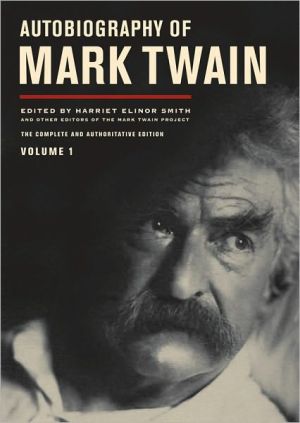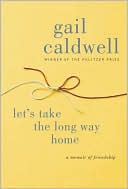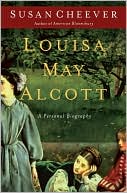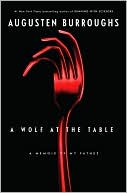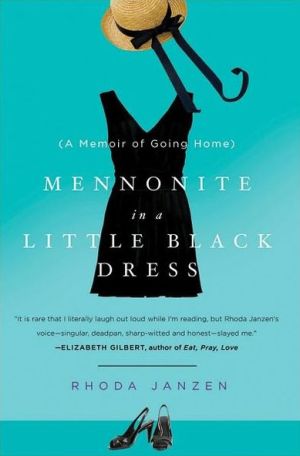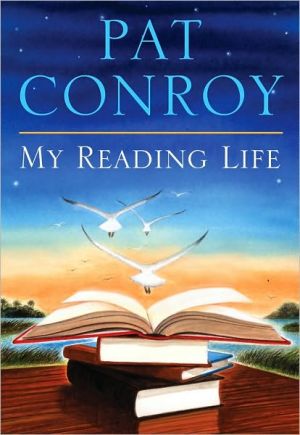Running with Scissors: A Memoir
The #1 New York Times Bestseller An Entertainment Weekly Top Ten Book of the Year Now a Major Motion PictureRunning with Scissors is the true story of a boy whose mother (a poet with delusions of Anne Sexton) gave him away to be raised by her unorthodox psychiatrist who bore a striking resemblance to Santa Claus. So at the age of twelve, Burroughs found himself amidst Victorian squalor living with the doctor’s bizarre family, and befriending a pedophile who resided in the backyard shed. The...
Search in google:
"OUTRAGEOUSLY AMUSING."—Entertainment Weekly"COMPELLING."—USA Today"BREATHTAKING."—Tampa TribuneTHINK YOUR CHILDHOOD WAS WEIRD?ENTER THIS TWELVE-YEAR-OLD'S WACKY WORLD…RUNNING WITH SCISSORS is the true story of a boy whose mother (a poet with delusions of Anne Sexton) gave him away to be raised by her unorthodox psychiatrist who bore a striking resemblance to Santa Claus. So at the age of twelve, Burroughs found himself amidst Victorian squalor living with the doctor's bizarre family, and befriending a pedophile who resided in the backyard shed. The story of an outlaw childhood where rules were unheard of, and the Christmas tree stayed up all year-round, where Valium was consumed like candy, and if things got dull, an electroshock therapy machine could provide entertainment. The funny, harrowing, and bestselling account of an ordinary boy's survival under the most extraordinary circumstances…"Promotes visceral responses (of laughter, wincing, retching) on nearly every page...funny and rich with child's-eye details of adults who have gone off the rails."—The New York Times Book ReviewVisit: www.augusten.com GENRE magazine If you love Sedaris, you'll fold over laughing with Running With Scissors, a witty and hilarious memoir.
\ Running with Scissors Acknowledgments\ Gratitude doesn’t begin to describe it: Jennifer Enderlin, Christopher Schelling, John Murphy, Gregg Sullivan, Kim Cardascia, Michael Storrings, and everyone at St. Martin’s Press. Thank you: Lawrence David, Suzanne Finnamore, Robert Rodi, Bret Easton Ellis, Jon Pepoon, Lee Lodes, Jeff Soares, Kevin Weidenbacher, Lynda Pearson, Lona Walburn, Lori Greenburg, John DePretis, and Sheila Cobb. I would also like to express my appreciation to my mother and father for, no matter how inadvertently, giving me such a memorable childhood. Additionally, I would like to thank the real-life members of the family portrayed in this book for taking me into their home and accepting me as one of their own. I recognize that their memories of the events described in this book are different than my own. They are each fine, decent, and hard-working people. The book was not intended to hurt the family. Both my publisher and I regret any unintentional harm resulting from the publishing and marketing of Running with Scissors. Most of all, I would like to thank my brother for demonstrating, by example, the importance of being wholly unique. Chapter One\ Something Isn’t Right\ My mother is standing in front of the bathroom mirror smelling polished and ready; like Jean Naté, Dippity Do and the waxy sweetness of lipstick. Her white, handgun-shaped blow-dryer is lying on top of the wicker clothes hamper, ticking as it cools. She stands back and smoothes her hands down the front of her swirling, psychedelic Pucci dress, biting the inside of her cheek.\ “Damn it,” she says, “something isn’t right.”\ Yesterday she went to the fancy Chopping Block salon in Amherst with its bubble skylights and ficus trees in chrome planters. Sebastian gave her a shag.\ “That hateful Jane Fonda,” she says, fluffing her dark brown hair at the crown. “She makes it look so easy.” She pinches her sideburns into points that accentuate her cheekbones. People have always said she looks like a young Lauren Bacall, especially in the eyes.\ I can’t stop staring at her feet, which she has slipped into treacherously tall red patent-leather pumps. Because she normally lives in sandals, it’s like she’s borrowed some other lady’s feet. Maybe her friend Lydia’s feet. Lydia has teased black hair, boyfriends and an above-ground pool. She wears high heels all the time, even when she’s just sitting out back by the pool in her white bikini, smoking menthol cigarettes and talking on her olive-green Princess telephone. My mother only wears fancy shoes when she’s going out, so I’ve come to associate them with a feeling of abandonment and dread.\ I don’t want her to go. My umbilical cord is still attached and she’s pulling at it. I feel panicky.\ I’m standing in the bathroom next to her because I need to be with her for as long as I can. Maybe she is going to Hartford, Connecticut. Or Bradley Field International Airport. I love the airport, the smell of jet fuel, flying south to visit my grandparents.\ I love to fly.\ When I grow up, I want to be the one who opens those cabinets above the seats, who gets to go into the small kitchen where everything fits together like a shiny silver puzzle. Plus, I like uniforms and I would get to wear one, along with a white shirt and a tie, even a tie-tack in the shape of airplane wings. I would get to serve peanuts in small foil packets and offer people small plastic cups of soda. “Would you like the whole can?” I would say. I love flying south to visit my grandparents and I’ve already memorized almost everything these flight attendants say. “Please make sure that you have extinguished all smoking materials and that your tray table is in its upright and locked position.” I wish I had a tray table in my bedroom and I wish I smoked, just so I could extinguish my smoking materials.\ “Okay, I see what’s the matter,” my mother says. She turns to me and smiles. “Augusten, hand me that box, would you?”\ Her long, frosted beige nail points to the box of Kotex maxi pads on the floor next to the toilet bowl. I grab the box and hand it to her.\ She takes two pads from the box and sets it on the floor at her feet. I notice that the box is reflected in the side of her shoe, like a small TV. Carefully, she peels the paper strip off the back of one of the pads and slides it through the neck of her dress, placing it on top of her left shoulder. She smoothes the silk over the pad and puts another one on the right side. She stands back.\ “What do you think of that!” she says. She is delighted with herself. It’s as if she has drawn a picture and placed it on her own internal refrigerator door.\ “Neat,” I say.\ “You have a very creative mother,” she says. “Instant shoulder pads.”\ The blow-dryer continues to tick like a clock, counting down the seconds. Hot things do that. Sometimes when my father or mother comes home, I will go down and stand near the hood of the car to listen to it tick, moving my face in close to feel the heat.\ “Are you coming upstairs with me?” she says. She takes her cigarette from the clamshell ashtray on the back of the toilet. My mother loves frozen baked stuffed clams, and she saves the shells to use as ashtrays, stashing them around the house.\ I am fixated on the dryer. The vent holes on the side have hairs stuck in them, small hairs and white lint. What is lint? How does it find hair dryers and navels? “I’m coming.”\ “Turn off the light,” she says as she walks away, creating a small whoosh that smells sweet and chemical. It makes me sad because it’s the smell she makes when she’s leaving.\ “Okay,” I say. The orange light from the dehumidifier that sits next to the wicker laundry hamper is looking at me, and I look back at it. Normally it would terrify me, but because my mother is here, it is okay. Except she is walking fast, has already walked halfway across the family room floor, is almost at the fireplace, will be turning around the corner and heading up the stairs and then I will be alone in the dark bathroom with the dehumidifier eye, so I run. I run after her, certain that something is following me, chasing me, just about to catch me. I run past my mother, running up the stairs, using my legs and my hands, charging ahead on all fours. I make it to the top and look down at her.\ She climbs the stairs slowly, deliberately, reminding me of an actress on the way to the stage to accept her Academy Award. Her eyes are trained on me, her smile all mine. “You run up those stairs just like Cream.”\ Cream is our dog and we both love her. She is not my father’s dog or my older brother’s. She’s most of all not my older brother’s since he’s sixteen, seven years older than I, and he lives with roommates in Sunderland, a few miles away. He dropped out of high school because he said he was too smart to go and he hates our parents and he says he can’t stand to be here and they say they can’t control him, that he’s “out of control” and so I almost never see him. So Cream doesn’t belong to him at all. She is mine and my mother’s. She loves us most and we love her. We share her. I am just like Cream, the golden retriever my mother loves.\ I smile back at her.\ I don’t want her to leave.\ Cream is sleeping by the door. She knows my mother is leaving and she doesn’t want her to go, either. Sometimes, I wrap aluminum foil around Cream’s middle, around her legs and her tail and then I walk her through the house on a leash. I like it when she’s shiny, like a star, like a guest on the Donnie and Marie Show.\ Cream opens her eyes and watches my mother, her ears twitching, then she closes her eyes again and exhales heavily. She’s seven, but in dog years that makes her forty-nine. Cream is an old lady dog, so she’s tired and just wants to sleep.\ In the kitchen my mother takes her keys off the table and throws them into her leather bag. I love her bag. Inside are papers and her wallet and cigarettes and at the bottom, where she never looks, there is loose change, loose mints, specks of tobacco from her cigarettes. Sometimes I bring the bag to my face, open it and inhale as deeply as I can.\ “You’ll be long asleep by the time I come home,” she tells me. “So good night and I’ll see you in the morning.”\ “Where are you going?” I ask her for the zillionth time.\ “I’m going to give a reading in Northampton,” she tells me. “It’s a poetry reading at the Broadside Bookstore.”\ My mother is a star. She is just like that lady on TV, Maude. She yells like Maude, she wears wildly colored gowns and long crocheted vests like Maude. She is just like Maude except my mother doesn’t have all those chins under her chins, all those loose expressions hanging off her face. My mother cackles when Maude is on. “I love Maude,” she says. My mother is a star like Maude.\ “Will you sign autographs?”\ She laughs. “I may sign some books.”\ My mother is from Cairo, Georgia. This makes everything she says sound like it went through a curling iron. Other people sound flat to my ear; their words just hang in the air. But when my mother says something, the ends curl.\ Where is my father?\ “Where is your father?” my mother says, checking her watch. It’s a Timex, silver with a black leather strap. The face is small and round. There is no date. It ticks so loud that if the house is quiet, you can hear it.\ The house is quiet. I can hear the ticking of my mother’s watch.\ Outside, the trees are dark and tall, they lean in toward the house, I imagine because the house is bright inside and the trees crave the light, like bugs.\ We live in the woods, in a glass house surrounded by trees; tall pine trees, birch trees, ironwoods.\ The deck extends from the house into the trees. You can stand on it and reach and you might be able to pull a leaf off a tree, or a sprig of pine.\ My mother is pacing. She is walking through the living room, behind the sofa to look out the large sliding glass door down to the driveway; she is walking around the dining-room table. She straightens the cubed glass salt and pepper shakers. She is walking through the kitchen and out the other door of the kitchen. Our house is very open. The ceilings are very high. There is plenty of room here. “I need high ceilings,” my mother always says. She says this now. “I need high ceilings.” She looks up.\ There is the sound of gravel crackling beneath tires. Then, lights on the wall, spreading to the ceiling, sliding through the room like a living thing.\ “Finally,” my mother says.\ My father is home.\ He will come inside the house, pour himself a drink and then go downstairs and watch TV in the dark.\ I will have the upstairs to myself. All the windows and the walls and the entire fireplace which cuts straight through the center of the house, both floors; I will have the ice maker in the freezer, the hexagonal espresso pot my mother uses for guests, the black deck, the stereo speakers; all of this contained in so much tall space. I will have it all.\ I will walk around and turn lights on and off, on and off. There is a panel of switches on the wall before the hall opens up into two huge, tall rooms. I will switch the spotlights on in the living room, illuminating the fireplace, the sofa. I will switch the light off and turn on the spotlights in the hallway; over the front of the door. I will run from the wall and stand in the spotlight. I will bathe in the light like a star and I will say, “Thank you for coming tonight to my poetry reading.”\ I will be wearing the dress my mother didn’t wear. It is long, black and 100 percent polyester, my favorite fabric because it flows. I will wear her dress and her shoes and I will be her.\ With the spotlights aimed right at me, I will clear my throat and read a poem from her book. I will read it with her distinctive and refined Southern inflection.\ I will turn off all the lights in the house and go into my bedroom, close the door. My bedroom is deep blue. Bookshelves are attached to the wall with brackets on either side of my window; the shelves themselves are lined with aluminum foil. I like things shiny.\ My shiny bookshelves are lined with treasures. Empty cans, their labels removed, their ribbed steel skins polished with silver polish. I wish they were gold. I have rings there, rings from our trip to Mexico when I was five. Also on the shelves: pictures of jewelry cut from magazines, glued to cardboard and propped upright; one of the good spoons from the sterling silver my grandmother sent my parents when they were married; silver my mother hates (“God-awful tacky”) and a small collection of nickels, dimes and quarters, each of which has been boiled and polished with silver polish while watching Donnie and Marie or Tony Orlando and Dawn.\ I love shiny things, I love stars. Someday, I want to be a star, like my mother, like Maude.\ The sliding doors to my closet are covered with mirror squares I bought with my allowance. The mirrors have veins of gold streaking through them. I stuck them to the doors myself.\ I will aim my desk lamp into the center of the room and stand in its light, looking at myself in the mirror. “Hand me that box,” I will say to my reflection. “Something isn’t right here.”\ Copyright © 2002 by Augusten Burroughs. All rights reserved.
\ From Barnes & NobleTo say that Augusten Burroughs had an unusual childhood would be an understatement. His eccentric mother -- a poet -- left him in the care of her shrink, a man who might have benefitted from a little therapy himself. Somehow, Augusten survived, and the result is this memoir, one both horrifying and hysterical.\ \ \ \ \ From the Publisher\ "I just finished reading the most amazing book. Running with Scissors is hilarious, freaky-deaky, berserk, controlled, transcendent, touching, affectionate, vengeful, all-embracing....It makes a good run at blowing every other [memoir] out of the water." --Carolyn See, The Washington Post\ "Funny and rich with child's eye details of adults who have gone off the rails." --The New York Times Book Review\ "It is as funny as it is twisted." --GQ\ "A hilarious and horrifying memoir." --Los Angeles Times\ "Harrowing and hilarious. I haven't laughed this much since David Sedaris's last book." --Haven Kimmel, author of A Girl Named Zippy\ "Running with Scissors is a cut above...compelling...the book celebrates Burroughs' resilient, upbeat spirit, which helps him surmount one of the weirder childhoods on record." --USA Today\ "The anecdotes can be so flippant, and so insanely funny (quite literally), that the effect is that of a William Burroughs situation comedy." --The New York Times\ "Burroughs defies the 'woe is me' stigma of modern memoir with a raucous recounting of his loony teenage years." --Entertainment Weekly\ "I was reminded of Roald Dahl's Boy and A Heartbreaking Work of Staggering Genius. Augusten Burroughs has produced a memoir that's funny and sharp but also humane, as charming as it is revealing." --Kurt Andersen, author of Turn of the Century\ "A memoir that is both horrifying and mordantly funny." --San Francisco Chronicle\ "Burroughs has memorialized his bizarre childhood showing off a dark wit that often rivals that 0of David Sedaris--while telling a true story that would make even Sedaris cringe." --New York Magazine\ "Burroughs tempers the pathos with sharp riotous humor... Edgier, but reminiscent of Dave Eggers' A Heartbreaking Work of Staggering Genius, this is a survival story readers won't forget." --Booklist\ \ \ \ Janet Maslin...a bawdy, outrageous, often hilarious account...In keeping with this book's dauntless comic timing, this guy doesn't miss a beat. \ —The New York Times\ \ \ \ \ GENRE magazineIf you love Sedaris, you'll fold over laughing with Running With Scissors, a witty and hilarious memoir.\ \ \ \ \ Out NowThis is an American Grotesque...; that the tale is true only adds to the hilarity—and the horror.\ \ \ \ \ Phillip LopateThis book is hilarious-because when things get that awful you have to laugh. Touching, troubling and...generously entertaining.\ \ \ \ \ Maxine KuminEngrossing and horripilating, this memoir has moments of intoxicating hilarity and grief.\ \ \ \ \ A. L. KennedyA wonderful autobiography...Beautifully written, generous, twisted—an American dream I could warm to.\ \ \ \ \ Publishers Weekly"Bookman gave me attention. We would go for long walks and talk about all sorts of things. Like how awful the nuns were in his Catholic school when he was a kid and how you have to roll your lips over your teeth when you give a blowjob," writes Burroughs (Sellevision) about his affair, at age 13, with the 33-year-old son of his mother's psychiatrist. That his mother sent him to live with her shrink (who felt that the affair was good therapy for Burroughs) shows that this is not just another 1980s coming-of-age story. The son of a poet with a "wild mental imbalance" and a professor with a "pitch-black dark side," Burroughs is sent to live with Dr. Finch when his parents separate and his mother comes out as a lesbian. While life in the Finch household is often overwhelming (the doctor talks about masturbating to photos of Golda Meir while his wife rages about his adulterous behavior), Burroughs learns "your life [is] your own and no adult should be allowed to shape it for you." There are wonderful moments of paradoxical humor Burroughs, who accepts his homosexuality as a teen, rejects the squeaky-clean pop icon Anita Bryant because she was "tacky and classless" as well as some horrifying moments, as when one of Finch's daughters has a semi-breakdown and thinks that her cat has come back from the dead. Beautifully written with a finely tuned sense of style and wit the occasional clich ("Life would be fabric-softener, tuna-salad-on-white, PTA-meeting normal") stands out anomalously this memoir of a nightmarish youth is both compulsively entertaining and tremendously provocative. Copyright 2002 Cahners Business Information.\ \ \ \ \ Library JournalThis memoir by Burroughs is certainly unique; among other adventures, he recounts how his mother's psychiatrist took her to a motel for therapy, while at home the kids chopped a hole in the roof to make the kitchen brighter. Not all craziness, though, this account reveals the feelings of sadness and dislocation this unusual upbringing brought upon Burroughs and his friends. His early family life was characterized by his parents' break-and-destroy fights, and after his parents separated, his mother practically abandoned Burroughs in hopes of achieving fame as a poet. At 12, he went to live with the family (and a few patients) of his mother's psychiatrist. At the doctor's home, children did as they wished: they skipped school, ate whatever they wanted, engaged in whatever sexual adventures came along, and trashed the house and everything in it, while the mother watched TV and occasionally dusted. Burroughs has written an entertaining yet horrifying account that isn't for the squeamish: the scatological content and explicit homosexual episodes may limit its appeal. Recommended for the adventurous seeking an unsettling experience among the grotesque. Nancy R. Ives, SUNY at Geneseo Copyright 2002 Cahners Business Information.\ \ \ \ \ Kirkus ReviewsAutobiography of adolescent trauma depicting the author's quest for survival in an unorthodox family alongside his quest for fabulous hair. Copywriter turned novelist Burroughs (Sellevision, 2000) captures in his memoir a particular cultural moment in the late 1970s and early '80s when the baby boomers' flaccid if-it-feels-good-do-it ethos soured. "My parents loathed each other and the life they had built together," he writes. The estrangement of his increasingly manic-depressive poet mother and cold, alcoholic father flung young Burroughs into the strange Northampton, Massachusetts, household of family psychiatrist Dr. Finch, a jolly and permissive yet ominous figure who advocated intense therapy and nonjudgmental fathering. At his mother's insistence, Burroughs spent much of his adolescence living among the Finches. The fussy, hairdressing-obsessed boy was unnerved by their squalid household but became close with irascible daughters Hope and Natalie, participating in their substance abuse and delinquency, helping them wreck the Finches' dilapidated Victorian house. The doctor's pseudo-parenting encouraged the boy's sexual relationship with creepy, manipulative, much older Neil Bookman, Finch's "adopted son." When the doctor coached Burroughs to stage a suicide attempt in order to get out of going to school, our hero began to wonder whether life with the Finches would equip him, or Hope, or Natalie with mainstream survival skills-eventually, surprisingly enough, it did. Burroughs strongly delineates the tangled, perverse bonds among these high-watt eccentrics and his childhood self, aspiring to a grotesque comic merger of John Waters and David Sedaris. However, his under-edited prose isfrequently uninspired and rambling, relying on consumer-culture references (from Clairol, Pat Benatar, Brooke Shields, Captain and Tennille, Sea Monkeys, the Brady Bunch, to Magic Eight Balls, etc., etc.) and repetitive sequences of abrasive dialogue ("Stop antagonizing me. . . . Just stop transferring all this anger onto me"). Presumably he garnered these details from his oft-mentioned journal, but they fail to deepen the characters. An unusual upbringing, reconstituted into a very usual memoir.\ \
